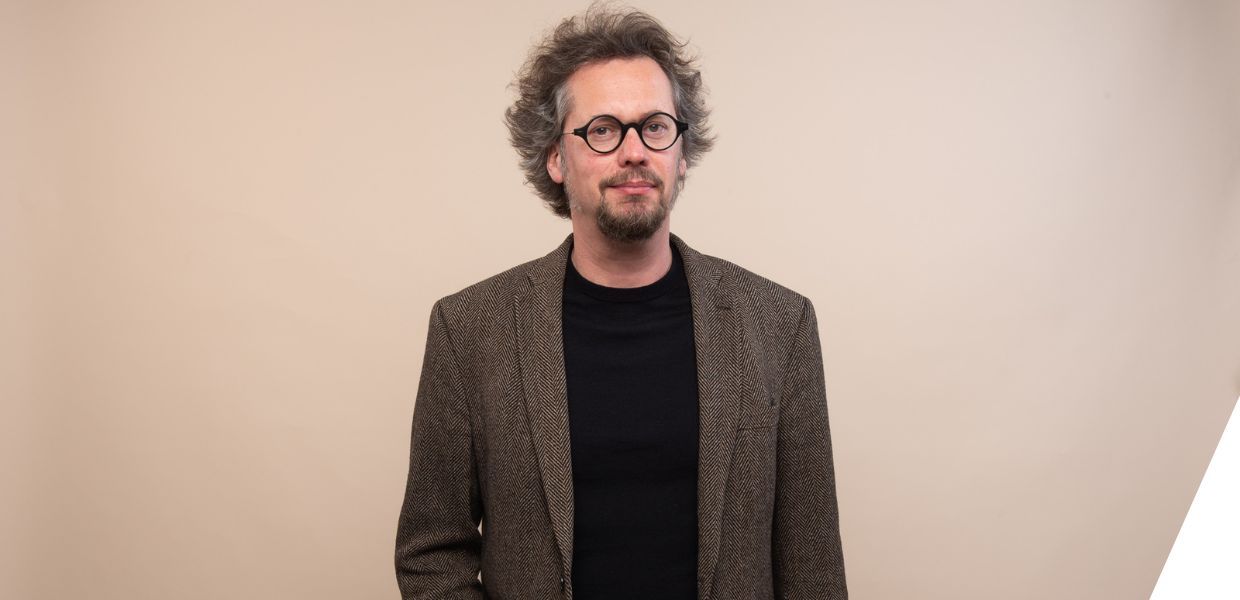How did you enter your profession?
Having a background in Philology (MA, Ghent) and Book History (PhD, Leiden), I was probably destined to end up in the library world. I started at Leiden University Library, but quickly moved to the KB, the National Library of the Netherlands in The Hague. Acquiring some basic coding skills during my high school days eventually led me to the place where I found my professional home: digital heritage collections. In 2016, I became the first curator of Digital Collections at the KB. So far, I have no plans to leave.
What are you currently working on?
As a curator, I facilitate research based on the KB collections. I serve as a point of contact for scholars, publish about (the history of) the collections, and provide advice and input on how to improve access to the collections, for example, by making them more FAIR or by enriching the documentation. This involvement makes me an active member of the KB's Digital Scholarship team and the KB Lab, but also leads me to participate in various research projects, such as CLARIAH. My focus lies in the use of digital books, newspapers, and magazines (both digitised and born digital), not as individual publications, but as collections, in line with the Collections as Data imperative.
In the coming years, we aim to make significant improvements in the availability of our collections as data. We want to build a corpus builder, a Graphical User Interface (GUI) allowing researchers to extract their particular research corpora from our digital collections. We are also developing a dataset registry and a secure VRE solution to enable mining of copyrighted materials.
Apart from that, I am working with an international group of colleagues from the Europeana Research and the EuropeanaTech communities, which are developing a concept called Datasheets for Digital Cultural Heritage, based on the work of Timnit Gebru at al. As heritage professionals, we are still in the process of learning how to handle a new unit of publication as well as a new group of users: datasets and machines. People read publications, while machines ‘read’ data(sets). We have centuries of experience in describing and giving access to publications, but we are only at the beginning when it comes to properly documenting and publishing datasets. I hope our datasheets concept will help in that regard.
Finally, I look forward to further refining our program for a Summer School on digital collections at the KB in 2024. Source criticism is fundamental to most humanities research, but digital source criticism still receives surprisingly little attention. During our Summer School we want to change that by allowing digital heritage objects and collections to occupy center stage.
What are some of the challenges in your role? What are some of your favourite elements?
Working with text in whatever form will never bore me, and collaborating on a national and even international level with researchers and heritage professionals who explore new research techniques and methods for the humanities keeps me motivated. Putting the knowledge and insights I gain there into swift practice is sometimes a challenge in our large national institution, though. My priorities do not always align with the overall goals of the library. It’s completely understandable, but no less frustrating.
What was your motivation for joining the Members Council?
Honestly? The KB asked me if I would consider putting myself forward as a candidate. The Europeana Foundation is located in the same building as the KB, but a few years ago, we noticed that contact had somewhat dwindled. There was no one representing the KB in the Members Council, and they saw me as a good candidate. I was honored when it turned out that I was actually elected.
What do you plan to do as a Members Councillor?
I have been a counselor for a few years now. I have primarily found my place on the Steering Group of the Research Community. It's a small, but great group of people, with a mission that I wholeheartedly support: fostering the use of digital cultural heritage in academia and research. Last year we organised a series of online lectures in the form of cafés. We aim to continue that, but also organise more workshops. And we have more plans up our sleeves.



